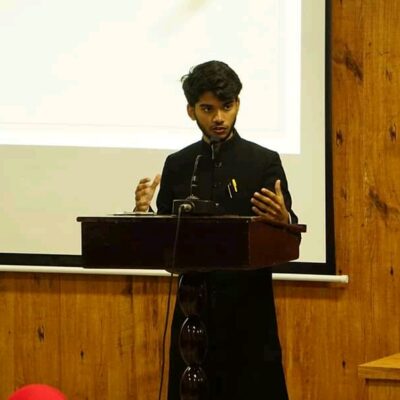Zore, Mohiduddin Quadri
Syed Mohiuddin Qadri Zore was a writer, scholar, poet, literary critic, historian, and social reformer from Hyderabad Deccan, India. He is celebrated for his profound contributions to Urdu language and literature. Born in Hyderabad, India, he received his early education at Dar ul Uloom Baldah (Hyderabad City) and later earned his M.A. in Linguistics from Osmania University.
Zore’s academic journey took him to London on a fellowship from the Nizam of Hyderabad, where he completed his Ph.D. in Linguistic Sciences at the University of London. He furthered his studies in Paris, focusing on phonetics, before returning to India. His scholarly career included serving as Principal of Chaderghat Government Degree College, heading the Urdu department at Osmania University, and later becoming Dean of the Faculty at Jammu and Kashmir University.
(1905 – 1962)
Throughout his life, Zore authored 61 books, ranging from poetry to scholarly criticism and linguistic analysis. Notable works include “Hindustani Lisaniat” (1932), shedding light on the evolution of Indo-European languages, and “Hindustani Phonetics,” a significant contribution to linguistics. His literary pursuits also encompassed historical and cultural studies such as “Tilism-e-Khayaal”, “Sayr-e-Golconda” and “Golconda ke Heeray,” exploring the rich heritage of the Deccan region.
Some of his works are listed below:
- Hindustani Lisaniat (1932) – A seminal work on the evolution of Indo-European languages.
- Hindustani Phonetics – A significant contribution to phonetics in English.
- Tillsm-e-Khayaal – Collection of essays.
- Sayr-e-Golconda – Historical study of Golconda.
- Golconda ke Heeray – Another work on Golconda’s history.
- Kulliyate Mohammad Quli Qutb Shah (1940) – Collection of poetry by Mohammad Quli Qutb Shah.
- Hayat-e-Mir Muhammad Momin (1941) – Biography of Mir Muhammad Momin.
- Dastane-adab Hyderabad (1951) – Stories of Hyderabad’s literature.
- Tazkira makhtutat Urdu Vols. II and III (1951 and 1957) – Compilation of Urdu manuscripts.
- Talib-o-mohni (1957) – Literary work.
- Maani sukhan (1958) – Collection of essays.
- Rooh-e-tanqueed, Vols. I and II (1927) – Critical works on Western principles of criticism.
- Urdu Shehpaare – A literary work.
- Urdu ke asaleeb-e-bayan – Work on Urdu grammar.
- Rooh-e-Ghalib (1939) – Critical study on Mirza Ghalib’s poetry.
- Sarguzasht-e-Garcin de Tassy – Historical work.
Dr. Zore’s e-books can be read on Rekhta: https://www.rekhta.org/authors/syed-muhiuddin-qadri-zor/ebooks?ref=web
Zore’s enduring legacy includes founding the Idare Adabiyaat e Urdu (known as ‘Aiwan-e-Urdu’), an institution dedicated to the preservation and promotion of Urdu literature, and initiating the Urdu magazine “Sabras.” His efforts played a pivotal role in promoting Urdu as a language of cultural and scholarly significance, influencing generations of scholars and enthusiasts worldwide.
Zore married Tahniath Unnisa begum, herself a noted Urdu poetess, and they had nine children. He passed away in 1962 in Srinagar, Kashmir, leaving behind a legacy that continues to shape Urdu literature and linguistic studies. His ancestral home, Tahniath Manzil, still stands in Hyderabad, adjacent to the Idara-e-Adabiyat-e-Urdu, a testament to his enduring influence and dedication to Urdu scholarship.

Article contributed by: Riasath Ali Asrar
Riasath Ali Asrar is the founder of Anjuman e Fannan & The Kabikaj Foundation. He also serves as the Editorial and Research Coordinator at The Deccan Archive Foundation. More on: www.asrar.blog
